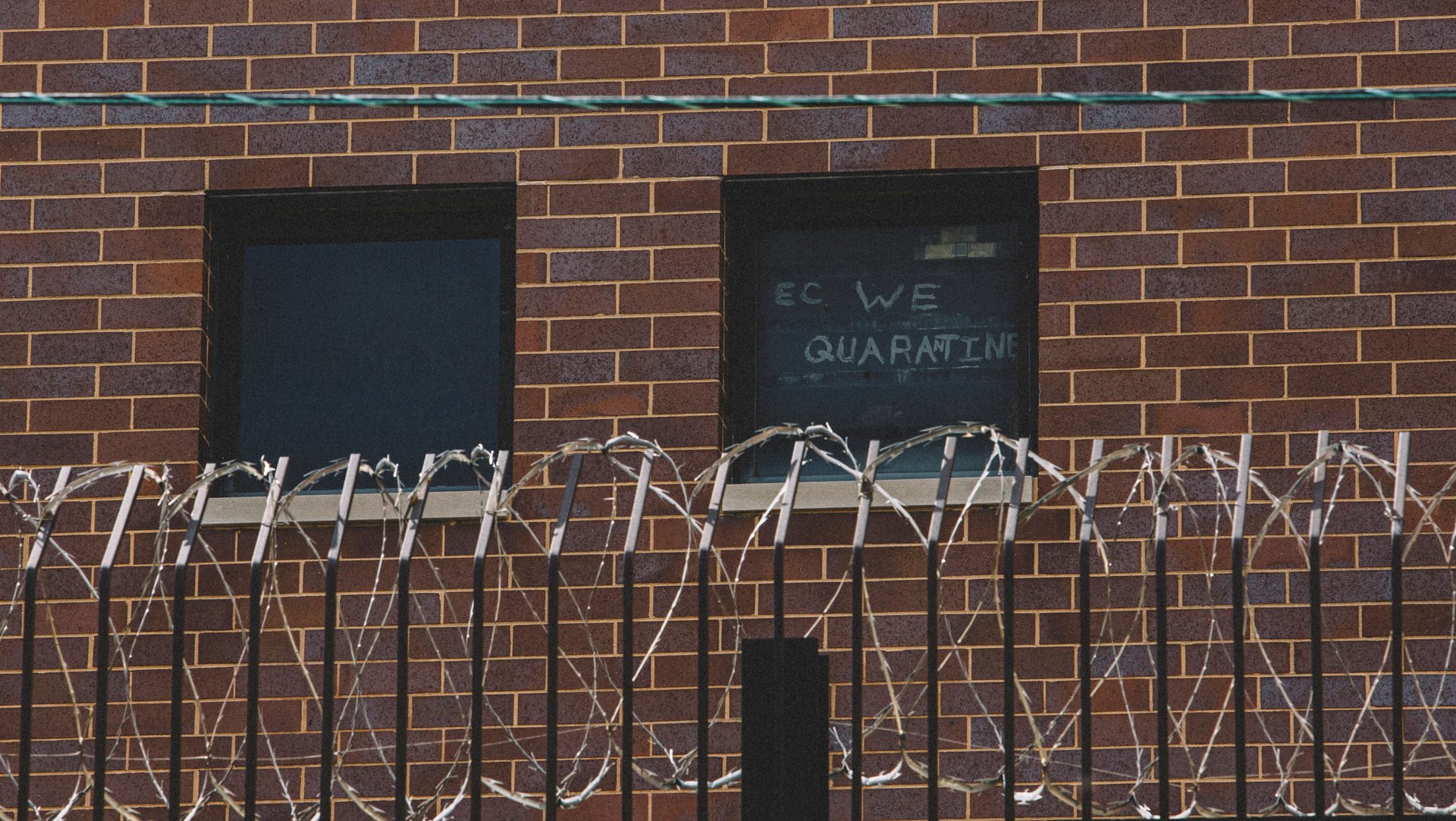There are more Covid-19 cases in some US prisons than in entire countries
As of today, according to the New York Times, there are 2,439 cases of Covid-19 connected to a prison in Marion, Ohio. Another facility, Pickaway Correctional Institution, is center of a cluster of 1,791 cases.


As of today, according to the New York Times, there are 2,439 cases of Covid-19 connected to a prison in Marion, Ohio. Another facility, Pickaway Correctional Institution, is center of a cluster of 1,791 cases.
Overall, there are over 1,600 clusters of 50 or more cases of coronavirus across the US. A cluster is a group of cases that can be traced to one place (for instance, a nursing home) or a situation (such as an event). All the larger clusters in the US—over 1,000 cases—are centered in one of two institutions: prisons, and meat processing facilities.
The volume of cases is comparable to that of entire countries: Overall, fewer people contracted coronavirus in Cyprus (975 cases), Jamaica (611 cases), or Rwanda (494 cases) than they did in Smithfield Foods pork processing facility in Sioux Falls in South Dakota, for instance, the source of 1,098 cases.
New Zealand (1,504 cases), Slovenia (1,490 cases), and Iceland (1,807 cases), for instance, all had outbreaks smaller than the one at the Marion correctional facility.
Prisons are too crowded to allow any social distancing and effective precautionary measures, and investigations have found a lack of protective gear, or even basic hygiene supplies. So far, there have been over 43,000 recorded Covid-19 cases in US prisons, over 500 of which were fatal.
As the epidemic spreads across the country, the US Bureau of Prisons set up guidelines to release prisoners from federal prisons, yet so far the percentage of released federal prisoners has been minuscule (as of the end April, only about 1%).
At the state level, the policies have varied greatly: In New York, for instance, governor Andrew Cuomo said up to 1,100 of the 50,000 prisoners held in state jails would be eligible for release, and so far about 900 have been released. In Ohio, about 110 people of the 51,000 held in state prisons have been released. Two states, Nevada and Hawaii, that haven’t even waived the co-pay for inmates in need of medical treatment for flu-related or Covid-19 symptoms.
This is especially relevant as protests following the death of George Floyd and demanding police reform continue across the country: Being arrested and held in jail while waiting for a court appearance presents a much higher risk of coronavirus exposure for protesters than the actual marches.